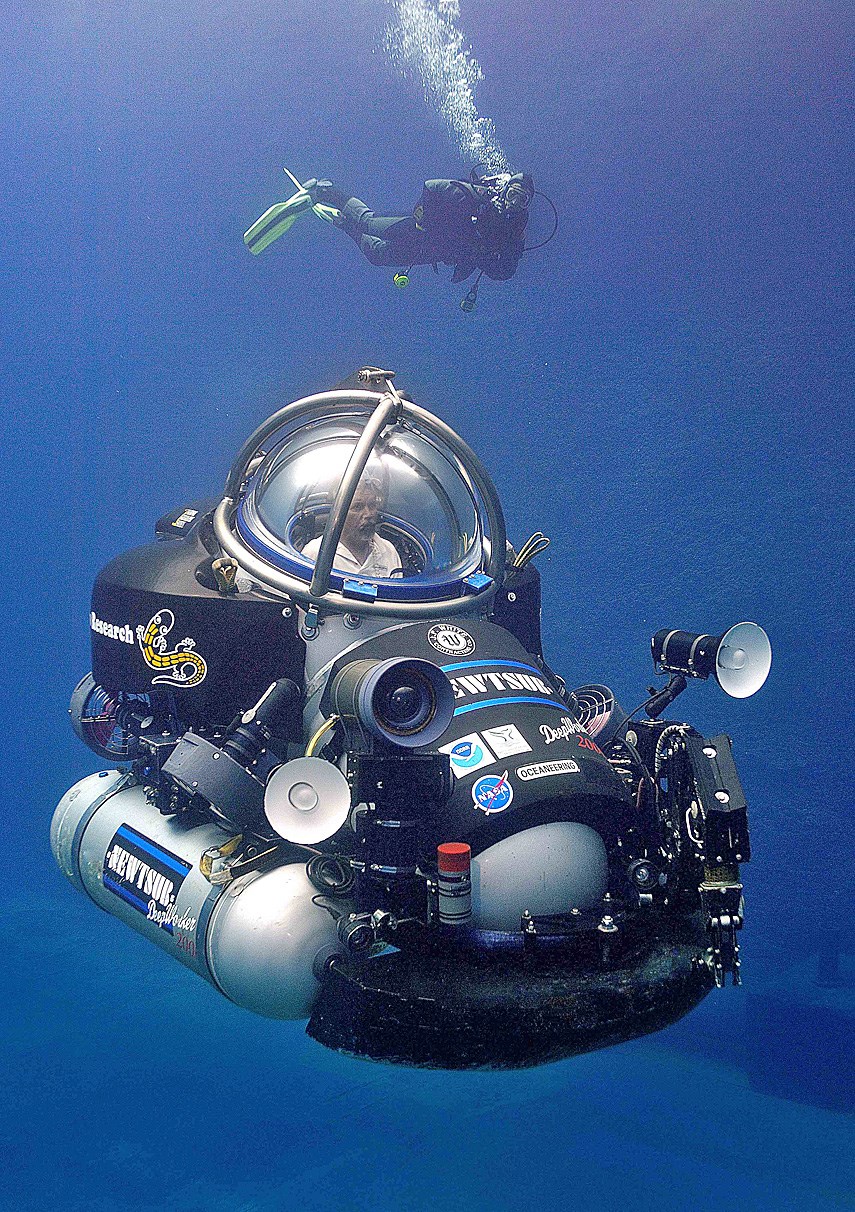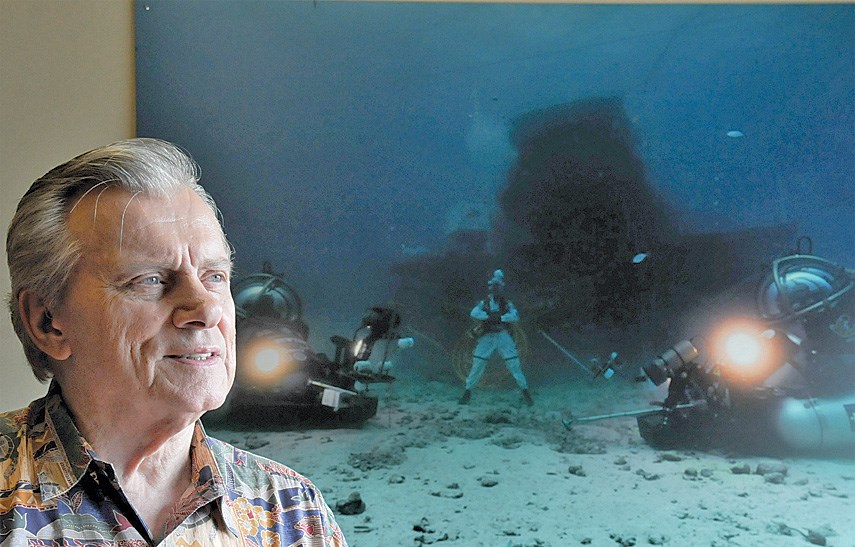What looked like perfunctory paper-pushing at a recent council meeting may end up assisting the exploration of the cosmos.
By recently approving a permit for a temporary dive tank, the City of North Vancouver council is enabling the training of astronauts and deep sea explorers, says Nuytco Research founder Phil Nuytten.
Nuytten, a North Shore inventor and entrepreneur, was speaking about being granted a permit to set up the tank in the parking lot at 214 East Esplanade. In November, six NASA astronauts are slated to drop into that tank for 10 days of training in Nuytten’s subs and metal dive suits.
William Todd, a project manager with NASA’s Extreme Environment Mission Operations division, cited that kind of training as crucial for astronauts like Chris Hadfield, the first Canadian to walk in space, as well as David St. Jacques, who is scheduled to board the International Space Station later this year. (Although, Nuytten confides, the best pilot he ever trained was Canada’s Gov. Gen. Julie Payette.)
Nuytten’s submersibles are highly manoeuvrable – making them ideal to practise landing on an asteroid.
“The ability to handle the landers, we can simulate exactly in the water with our subs,” Nuytten said.
In a letter submitted to council, Todd underscored the critical nature of NASA’s work with Nuytco.

“I hope that we can proceed with this unique and essential training and technology development program which has been mutually beneficial to our communities, countries and space agencies,” he wrote.
But not all space exploration takes place above the rooftop of Earth’s atmosphere. Nuytten has also worked with NASA and the Canadian Space Agency on a project that aims to unearth the riddles of the Universe by looking into a B.C. lake.
Pavilion Lake, located north of Lillooet near Marble Canyon Park, has been described as a scientific gold mine because of the presence of microbialites. Rock hard and iridescent as frozen algae, the sedimentary organism may date back 3.45 billion years, according to a report from Massachusetts Institute of Technology researchers.
As NASA sets their stargazers on the red planet, Nuytten’s submarine launch and recovery systems assisted the Pavilion Lake project in a bid to understand life on Mars, Nuytten said.
“Microbialites are some of the oldest known critters on this planet and they leave a very distinctive signature in the geology,” Nuytten said. “The geology on Mars is such that if there is life on Mars, or ever was life, it will probably take this form.”
To dive into a period of history that makes cretaceous dinosaurs look young, Nuytten deployed DeepWorker subs to map the lake and get a close look at the luminescent rock-like structures on Pavilion’s floor.
The most critical feature of Nuytten’s diving suits may be that they allow for a consistent atmosphere 1,000 feet below sea level, thus cutting the risk of the bends and other physiological horrors associated with deep sea diving.
Having trained in the sub himself, Jean Michel Cousteau, son of famed conservationist and filmmaker Jacques Cousteau, reached out to Nuytten about getting his colleagues trained in preparation for an upcoming TV series.
“We will provide the suits and the subs to go around the world,” Nuytten said. “They plan on going into deep water.”
When Nuytten says deep water, he’s referring to parts of the ocean that no one has explored.
The show is expected to mirror Jacques Cousteau’s explorations in his ship, the Calypso, but, “to do things the Cousteau group on Calypso could never do,” Nuytten said.
Until last month, all that work hinged on a temporary use permit.
After a council discussion that was scarcely 60 seconds, Nuytten had permission to keep the tank over top of six parking spots on Esplanade for the next three years.
The tank was first displayed at Expo 86. Besides being used as an aquatic chapel for underwater weddings, the tank was also the testing ground for Nuytten’s pioneering Newtsuit.
Nuytten lost the tank following a hostile takeover of a Nuytco company but recently got the chance to bring it back to the North Shore after the U.S. company went out of business.
“There is no comparable tank, not only on the North Shore but not even in Vancouver,” Nuytten said.
While onlookers won’t be able to sit in lawn chairs and watch astronauts train, Nuytten said he may offer viewing opportunities.
Nuytten, who helped build submarines for James Cameron’s 1989 science fiction film The Abyss, also suggested the tank could be a “tremendous boon” for the local movie industry. Heavy optical glass on the side of the tank allows moviemakers to simulate underwater photography without getting a raindrop on the camera.
“This is not just your average swimming pool,” Nuytten said.



